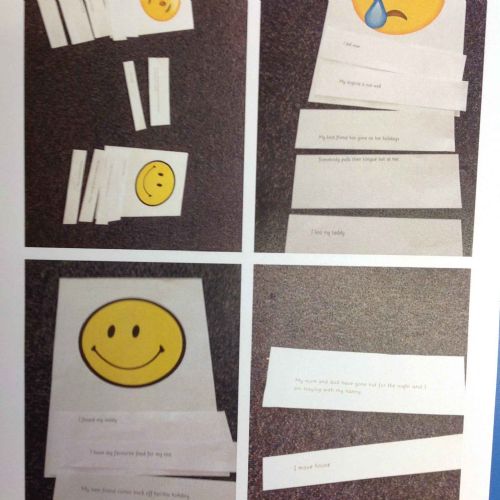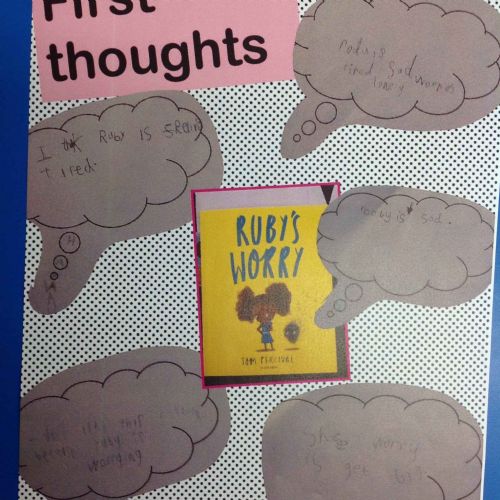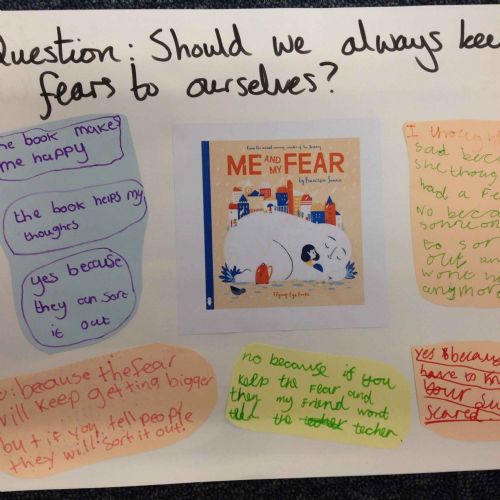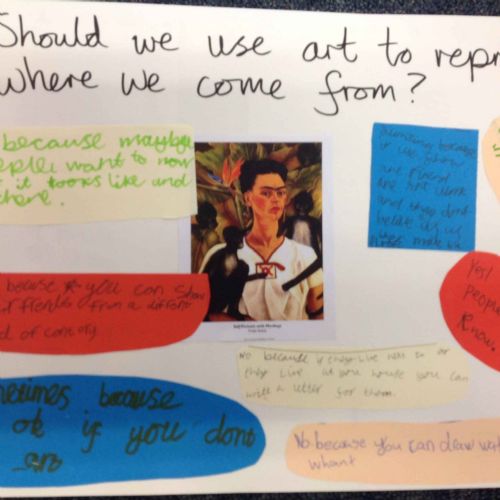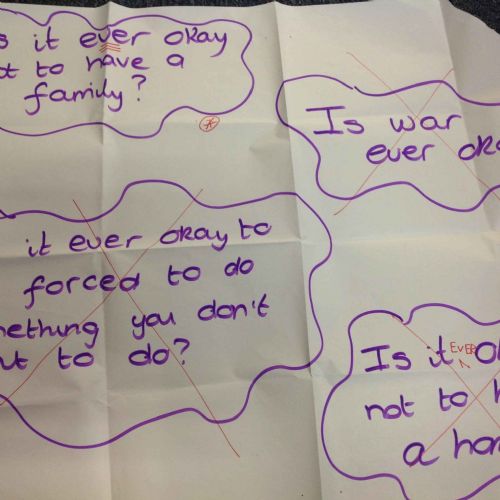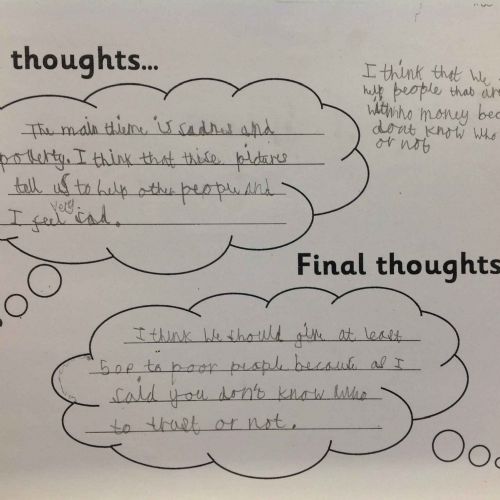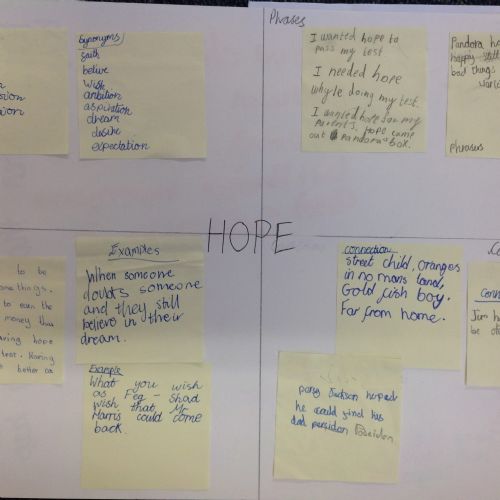Philosophy
We aim for our children to become confident, reasonable and valued members of society and our Philosophy for Children (P4C) lessons are an important part in helping our children to achieve this. P4C teaches thinking skills and the ability to question and reason. Through P4C lessons, our children are given the opportunity to have their voice heard, and listen to the opinions of others, in a respectful and safe environment. Our P4C sessions happen frequently across the whole school and cover all curriculum subjects. As a student-led, enquiry based approach to learning, the P4C lessons give children the chance to raise topics that are relevant to them and to discuss the issues that mean the most to them. The community of enquiry in which P4C lessons take place enable children to work together, building on each other’s ideas in a secure space built on communication, collaboration and mutual respect.
What we do
P4C begins at our Early Years Foundation Stage, where Nursery and Reception children begin to take their first steps in listening to each other and responding to questions. They learn how to give reasons for their answers, listen to the opinions of others, and ask wondering questions. In KS1, children begin to build on each others ideas and respond to what others have to say. They also take their first steps towards whole P4C enquiries, sharing their first thoughts and creating their own ground rules for the discussion. As they move through KS2, children begin to develop their questioning skills and focus on the 4Cs in their discussions (caring, collaborative, critical, creative). By Upper KS2, children are encouraged to take more ownership over the P4C enquiry, evaluating their own contribution and the progress of the group.
Children take part in a P4C lesson at least once every 2 weeks, facilitated by their class teacher. P4C is taught across the curriculum, encompassing a wide range of themes and subjects, allowing children to explore the topics they are most interested in and dig deeper into different subject areas. A P4C lesson begins with children exploring a range of concepts, which lead into a stimulus. From this stimulus, children identify a range of themes from which they begin to form their own questions. After the children have voted on the question they would like to discuss, they are able to reflect privately and share their thoughts with the group. Throughout the discussion, children listen to others and are encouraged to build on ideas, and think critically and creatively. By the end of the session, the community of enquiry expresses their final thoughts on the question and discussion, before evaluating the individual contributions and overall progress of the group.
P4C lessons can be stand alone lessons to address curriculum topics and relevant issues, but many of our enquiries follow a cycle of enquiry, with one P4C session raising ideas, concepts and themes to be developed in future sessions.
The benefits of P4C
Our P4C lessons impact on our pupils’ spiritual, moral, social and cultural development and they are an important part in how we develop and support our children’s mental health and wellbeing. Through the lessons, children develop their empathy skills, ability to communicate, and respect for others. They learn that their opinion is important and will be listened to, whilst also learning to value the views of others, no matter what their social or cultural background is. Through working in a community of enquiry, the children learn to work together and become accepting of different views and values. Children learn how to justify their opinions but also accept that they are able to change their opinions as they learn more.
Examples of our work:
P4C has been shown to improve:
- Achievement in reading and maths
- Communication skills
- Teamwork
- Resilience
- Questioning and reasoning skills
More information about the impact of P4C can be found here https://sapere.satorimm.com/about-us/p4c-research.aspx
More information about P4C can be found through the following websites:



